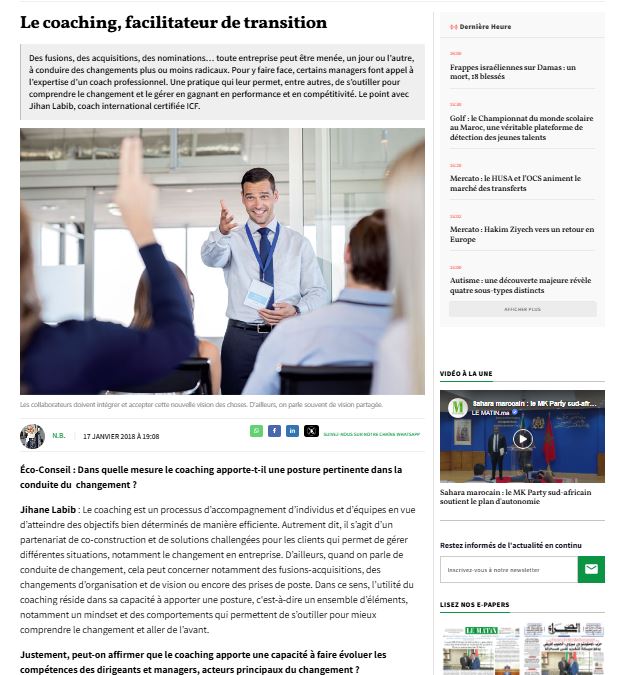1. When Should You Consider Transition Coaching orOutplacement?
In a world of perpetual change, nothingremains stable for long.
From economic downturns to technologicaldisruption, from budget cuts to shifting consumer behaviors,the workplace is being redefined. Staying in the same role for years is nolonger the default.
That’s why transition coaching or outplacementprograms are becoming essential. They help individuals or groups navigatepersonal or organizational change, whether the shift is chosen orimposed.
What is Transition Coaching?
It’s a structured coaching process thathelps professionals:
- Prepare for internal changes (e.g. moving into management)
- Successfully manage external shifts (e.g. changing companies)
What is Outplacement?
Outplacement is a career support service,typically offered during a negotiated employee departure. It helps theindividual:
- Find a new role that aligns with their skills, motivations, and personality
- Reposition themselves confidently and efficiently in the job market
2. When Does Career Change Become Necessary?
Career change becomes vital when:
- You need to breathe new life into your professional journey
- Your employer terminates your contract and you need to rebuild
There are critical phases in any career:
- At 5, 10, 20, or 30 years of experience
These are what I call strategic turning points,and anticipating them allows you to plan and manage your career proactively
- Transition coaching prepares you for these changes
- Outplacement supports recovery after job loss
3. What Tools and Methods Help Career Changers?
The coaching process does more than help someonefind a job—it also
- Supports their emotional state
- Helps them process uncertainty
- Builds clarity and confidence
A typical transition coaching plan includes:
- Skills assessment
- Personal career project definition
- Action plan development
- Job search techniques
- Interview preparation
4. How to Avoid Failure in Career Transition?
To succeed in a career change, you must
- Keep perspective and stay positive
- Understand that some of the greatest successes arise after crises
- Be willing to self-reflect and truly evolve
- Clarify your vision, persist, and believe in your ability to succeed
As a transition coach, I emphasize two keyprocesses:
Autonomy and Grief
Every major change involves leaving somethingbehind. Transition requires working through what we call the grief curve,based on Dr. Elisabeth Kübler-Ross’s model
- Denial – resisting the end of a routine or comfort zone
- Anger – blaming circumstances, leaders, or fate
- Sadness – feeling helpless or disappointed
- Bargaining – seeking compromise or conditions
- Acceptance – ready to act and move forward
The Coach’s Role
Transition coachingdemands
- Strong professional experience across multiple industries
- Deep knowledge in sociology, HR, and recruitment
- The ability to guide individuals through complex emotional processes
“Success in transition isn’t just about landing thenext job.
It’s about rediscovering purpose, rebuilding resilience, and
redefining your professional identity.” – Jihane Labib


